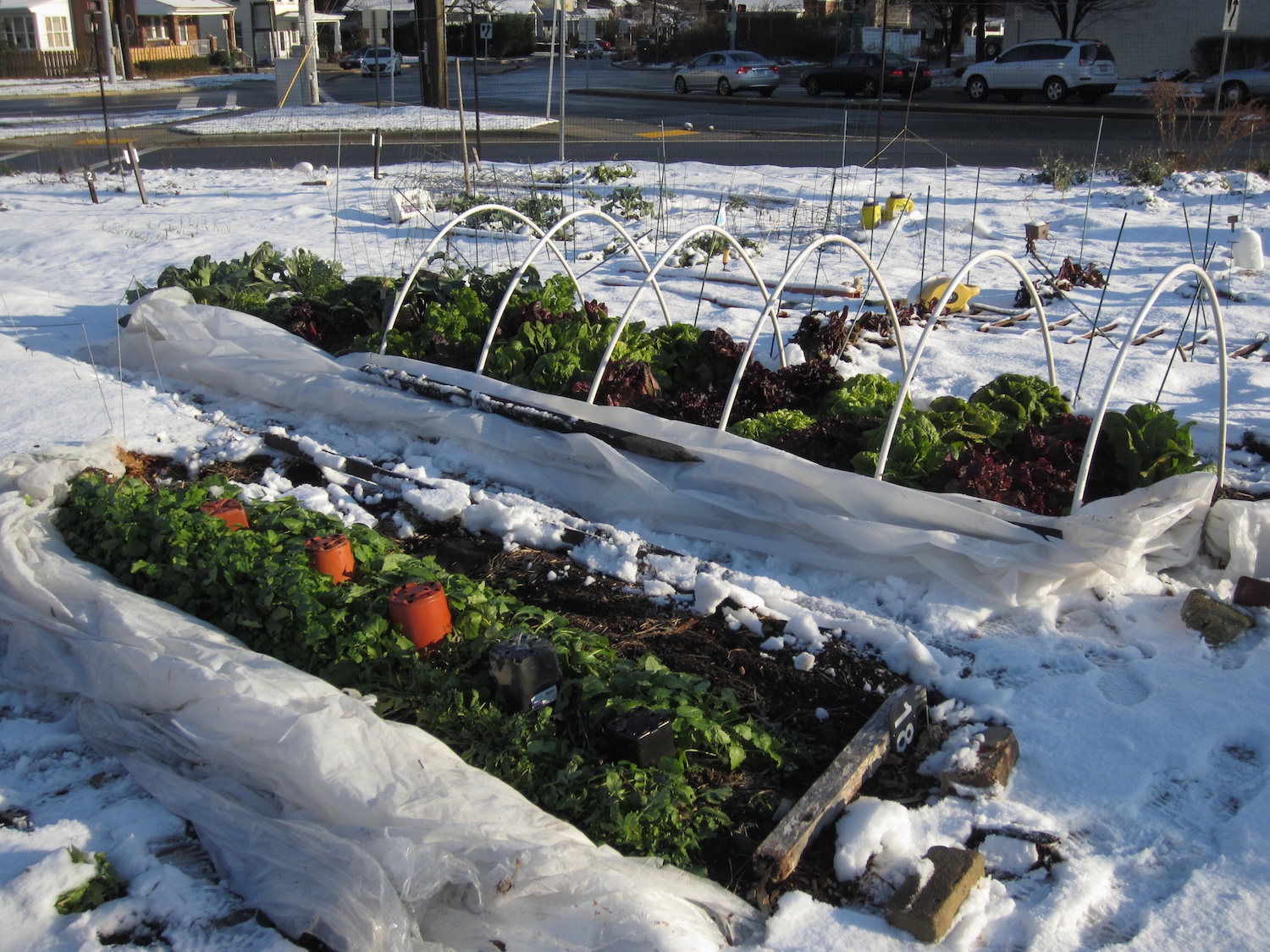Urban Veggie Gardening, Top Tips

Urban Veggie Gardening: Top Tips for Winter Vegetable Gardening in Urban Areas
Winter doesn't have to be the end of your green thumb adventures, especially in urban areas. Let's dive into the world of winter vegetable gardening and explore how you can keep your urban farming dreams alive even in the colder months.
Why Winter Vegetable Gardening in Urban Areas?
Just because the temperature drops doesn't mean your gardening dreams have to hibernate. Winter vegetable gardening in urban areas is not only possible but also incredibly rewarding. Imagine fresh, crisp greens on your dinner table, grown right in your own urban oasis. Plus, it's a fantastic way to stay connected to nature even when the weather is less than inviting.
Understanding Winter Vegetables
Before we dive into the tips, let's understand what winter vegetables are. These are hardy plants that can withstand colder temperatures. Think kale, spinach, carrots, and even some varieties of lettuce. They're tough, resilient, and perfect for your urban winter garden.
Top Winter Vegetables for Urban Gardening
- Kale: This superfood thrives in cold weather.
- Spinach: Perfect for salads and smoothies, spinach loves the chill.
- Carrots: They grow sweeter in cold weather. Who knew?
- Lettuce: Some varieties, like Arctic King, are cold-hardy.
- Broccoli: A versatile veggie that can handle a bit of frost.
Container Gardening: Your Winter Best Friend
Container gardening is a game-changer for urban farming, especially in winter. Pots and planters allow you to move your garden around to catch the best light and protect your plants from harsh winds. Plus, they're perfect for small spaces like balconies or rooftops.
Best Containers for Winter Gardening
- Fabric Pots: They're light, durable, and provide excellent drainage.
- Wooden Planters: These are great for insulation but can be heavy.
- Plastic Containers: Lightweight and affordable, but make sure they're durable enough to last the season.
Rooftop Gardening: Utilizing Urban Spaces
Don't let limited ground space deter you. Rooftop gardening is a fantastic way to utilize urban areas. Just ensure your roof can handle the weight and that you have permission if you're renting.
Tips for Rooftop Gardening
- Wind Protection: Use trellises or screens to protect your plants.
- Lightweight Containers: Opt for light materials to minimize roof load.
- Drainage: Ensure your containers have good drainage to prevent waterlogging.
Vertical Gardening: Maximizing Small Spaces
Vertical gardening is another brilliant solution for urban areas. By growing upwards, you can maximize your space and add a unique touch to your garden.
DIY Vertical Garden Ideas
- Pocket Planters: These are fabric pockets that can be hung on walls or fences.
- Palettes: Repurpose old palettes into vertical gardens.
- Trellises: Perfect for climbing plants like peas or beans.
Community Gardens: Gardening Together
If space is a real issue, consider community gardens. They're a fantastic way to connect with fellow urban farmers and share resources. Check out www.urbanfarm.org for more info on community gardening.
Benefits of Community Gardens
- Shared Knowledge: Learn from experienced gardeners.
- Resource Sharing: Share tools, seeds, and plants.
- Community Building: Connect with like-minded individuals.
Preparing Your Soil for Winter
Healthy soil is the foundation of any successful garden. For winter gardening, ensure your soil is well-draining and rich in organic matter. Compost is your best friend here.
Soil Preparation Tips
- Add Compost: This improves drainage and nutrient content.
- Mulch: A layer of organic mulch can help insulate your soil.
- Test pH: Ensure your soil pH is suitable for your chosen vegetables.
Protecting Your Plants from Frost
Frost can be a real threat to your winter garden. But with the right protection, your plants can thrive.
Frost Protection Tips
- Row Covers: These act like blankets for your plants.
- Cloches: Mini greenhouses that protect individual plants.
- Mulch: A thick layer of mulch can insulate your plants' roots.
Watering in Winter
Watering can be tricky in winter. Too much, and your plants can freeze; too little, and they'll dry out. The key is to water deeply but less frequently.
Winter Watering Tips
- Check Soil Moisture: Stick your finger in the soil to check if it's dry.
- Water Mid-Day: This gives the water time to absorb before temperatures drop.
- Avoid Overhead Watering: This can lead to frozen leaves.
Harvesting Winter Vegetables
Harvesting in winter can be incredibly satisfying. But remember, most winter vegetables are frost-hardy, not frost-proof. Harvest before a hard freeze if possible.
Harvesting Tips
- Timing: Harvest in the late morning after the dew has evaporated.
- Storage: Store your veggies properly to extend their shelf life.
- Succession Planting: Plant in intervals to ensure a continuous harvest.
Conclusion
Winter vegetable gardening in urban areas is not only possible but also incredibly rewarding. With the right planning, protection, and a bit of creativity, you can enjoy fresh, homegrown produce all year round. So, what are you waiting for? Grab your gloves and let's get planting!
FAQs
Q: Can all vegetables be grown in winter? A: No, only cold-hardy vegetables like kale, spinach, and carrots can withstand winter temperatures.
Q: How do I protect my plants from frost? A: Use row covers, cloches, or a thick layer of mulch to insulate your plants.
Q: What is the best container for winter gardening? A: Fabric pots are great for winter gardening due to their durability and drainage.
Q: How often should I water my winter garden? A: Water deeply but less frequently. Always check soil moisture before watering.
Q: What if I don't have space for a garden? A: Consider vertical gardening or joining a community garden to maximize your space.
0 Response to " Urban Veggie Gardening, Top Tips"
Post a Comment